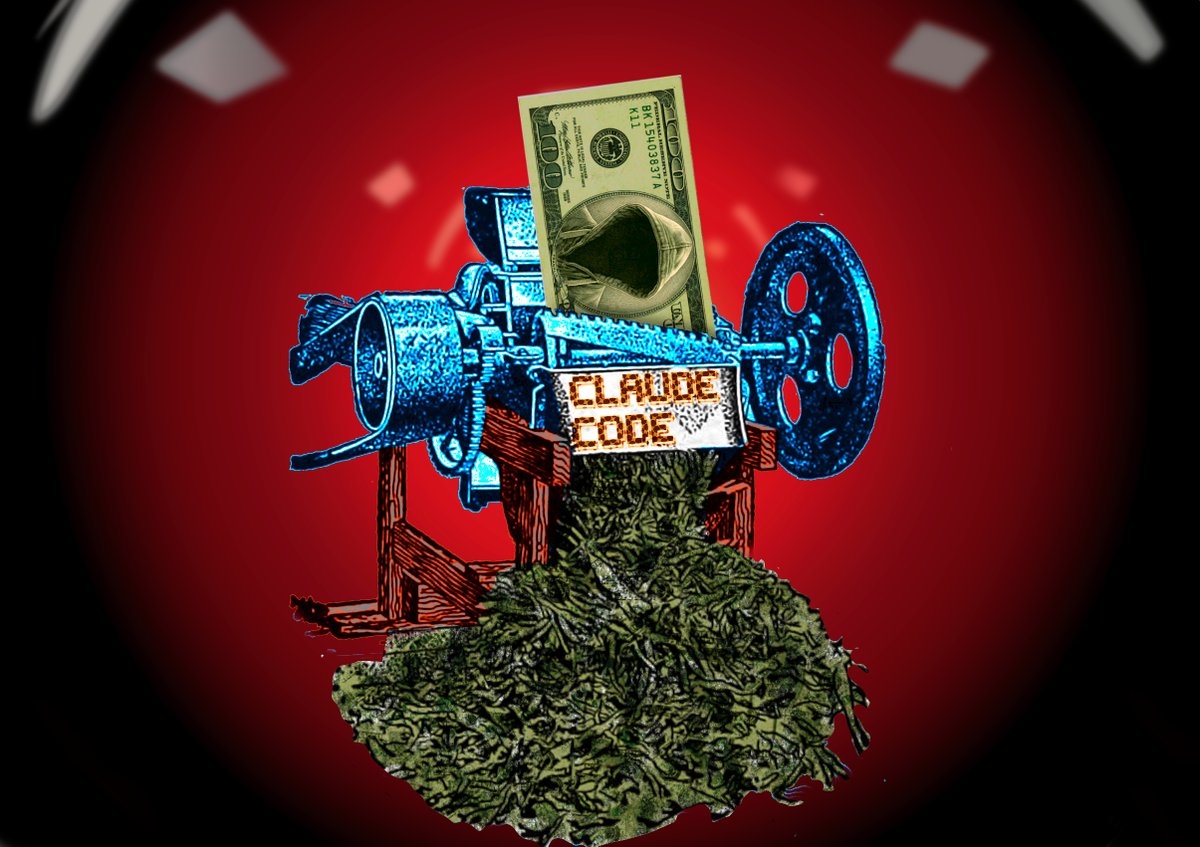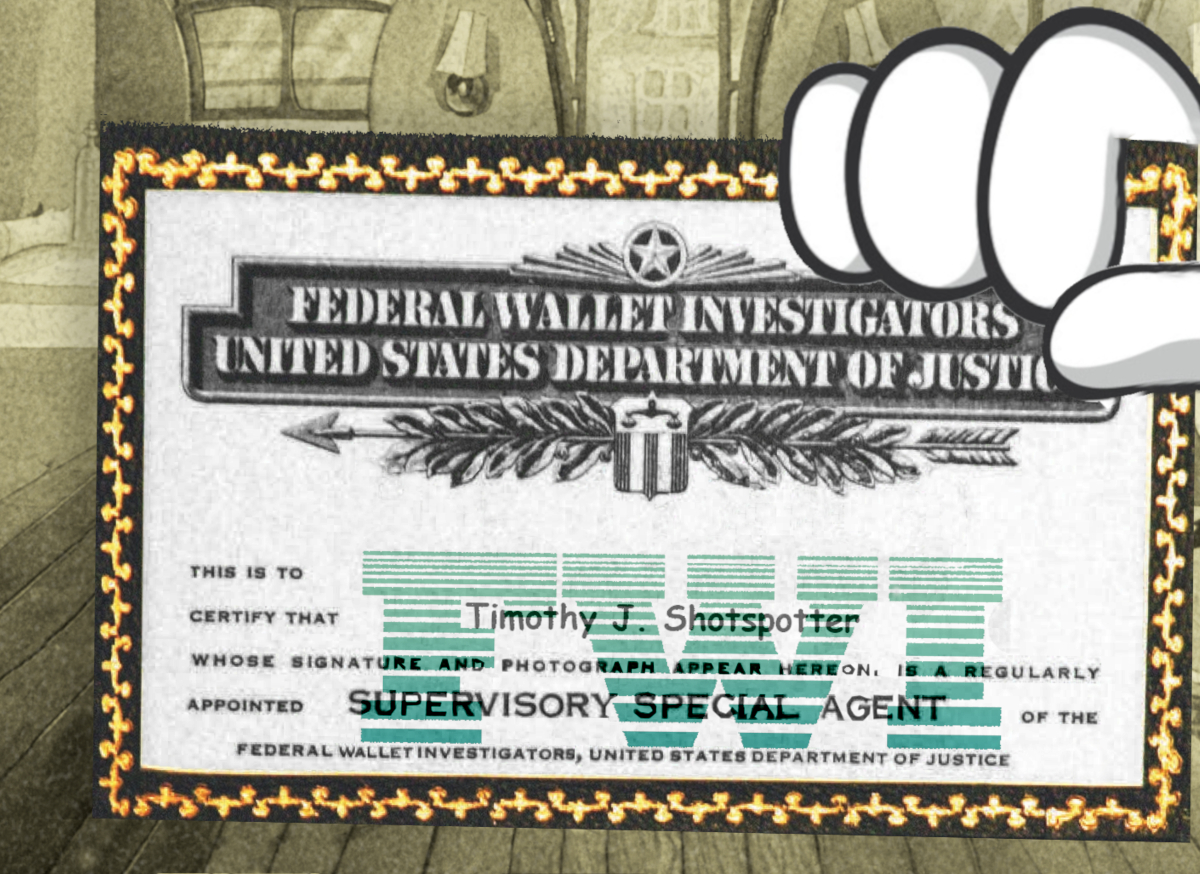This is more-or-less my last blogging day of 2021 (I may sneak a post or two in before the New Year, but I might not), so it's time for my annual roundup of my book reviews from the year gone by.
1/
1/

I've sorted this year's books by genre (sf/f, other novels, graphic novels, YA, nonfic) a
nd summarized the reviews with links to the full review.
2/
nd summarized the reviews with links to the full review.
2/
As ever, casting my eye over the year's reading fills me with delight (at how much I enjoyed these books) and shame (at all the excellent books I was sent or recommended that I did *not* get a chance to read). 2021 was a hard year for all of us and I'm no exception.
3/
3/
I ended up whiffing on *so many* astonishingly great and highly desirable books this year and I feel awful about it, to be honest.
4/
4/
I know what it's like to launch a book in a pandemic (I had *four* books out in 2020, ugh), and I so want to get those writers' and publishers' books into your hands. I might actually start an aspirational "books I wish I was reading" monthly or quarterly list for 2022.
5/
5/
On the subject of book publishing a pandemic: last year saw the publication of the paperback of my novel *Attack Surface*, the third Little Brother book:
craphound.com/homeland/2021/…
6/
craphound.com/homeland/2021/…
6/
There's still signed stock at @darkdel, and depending on the postal service, it's possible that if you order one (or the other signed books of mine they have on hand) that you'll get it in time for the Christmas break.
darkdel.com/store/p1840/Co…
7/
darkdel.com/store/p1840/Co…
7/
And speaking of 2022, I'll be publishing the first of *seven* planned books for 2022/3/4 in September: "Culture Heist: The Rise of Chokepoint Capitalism and How Workers Can Defeat It," comes out from @BeaconPressBks in September.
8/
8/
It's a book on monopoly and creative labor exploitation that I co-wrote with @rgibli and it's *excellent*.
Now, onto the reviews!
* Science fiction/fantasy novels
9/
Now, onto the reviews!
* Science fiction/fantasy novels
9/
I. Situation Normal, by @leonardr
Richardson's second novel is a droll, weird, fast-moving space-opera with a gigantic cast, myriad subplots, and fascinating premises – a novel so brilliantly conceived that it runs like precision clockwork.
pluralistic.net/2020/12/14/sit…
10/
Richardson's second novel is a droll, weird, fast-moving space-opera with a gigantic cast, myriad subplots, and fascinating premises – a novel so brilliantly conceived that it runs like precision clockwork.
pluralistic.net/2020/12/14/sit…
10/

II. Rabbits, by @tkmiles
Mile's debut novel is a taut, conspiratorial thriller with overtones of PK Dick by way of Qanon and Dark City, a supernatural tale that illuminates the thrill and terror of ARG-like groups.
pluralistic.net/2021/06/08/leo…
11/
Mile's debut novel is a taut, conspiratorial thriller with overtones of PK Dick by way of Qanon and Dark City, a supernatural tale that illuminates the thrill and terror of ARG-like groups.
pluralistic.net/2021/06/08/leo…
11/

III. The City We Became, by @NKJemisin
A magic realist novel of New York City that is both a fantastic contemporary fantasy novel and a scorching commentary on the infantile nature of the racist dogma of HP Lovecraft and his ilk.
pluralistic.net/2021/01/09/the…
12/
A magic realist novel of New York City that is both a fantastic contemporary fantasy novel and a scorching commentary on the infantile nature of the racist dogma of HP Lovecraft and his ilk.
pluralistic.net/2021/01/09/the…
12/

IV. When the Sparrow Falls, by @unshavedmouse
A tense dystopia about the unraveling of a paranoid hermit kingdom established as a final redoubt against humanity's ascent to the cloud. A claustrophobic nightmare of authoritarian antitranshumanism.
pluralistic.net/2021/07/01/bas…
13/
A tense dystopia about the unraveling of a paranoid hermit kingdom established as a final redoubt against humanity's ascent to the cloud. A claustrophobic nightmare of authoritarian antitranshumanism.
pluralistic.net/2021/07/01/bas…
13/
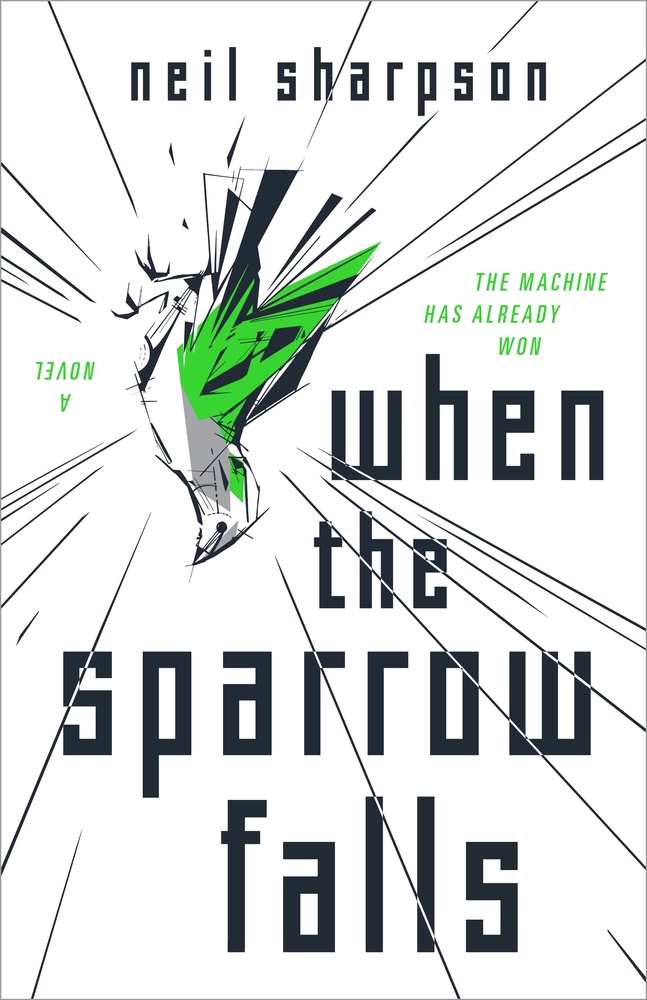
V. King Bullet, by @Richard_Kadrey
The final #SandmanSlim novel - more than a decade in the making, and a triumphant capstone to a supernatural noir series that transcended the tropes of noir and the supernatural with a tale of transformation, redemption, revenge and sacrifice.
The final #SandmanSlim novel - more than a decade in the making, and a triumphant capstone to a supernatural noir series that transcended the tropes of noir and the supernatural with a tale of transformation, redemption, revenge and sacrifice.

VI. Hench, by @NatalieZed
This debut novel is fantastic, funny, furious and fucking amazing. It is a profound and moving story about justice wrapped up in a gag about superheroes, sneaky and sharp.
pluralistic.net/2021/08/19/fai…
15/
This debut novel is fantastic, funny, furious and fucking amazing. It is a profound and moving story about justice wrapped up in a gag about superheroes, sneaky and sharp.
pluralistic.net/2021/08/19/fai…
15/

VII. The Every, by Dave Eggers
The sequel to Eggers' 2013 techno-dystopian satire "The Circle," and it's a deeply discomfiting, darkly hilarious, keen-edged tale of paternalism and its discontents.
pluralistic.net/2021/10/05/mas…
16/
The sequel to Eggers' 2013 techno-dystopian satire "The Circle," and it's a deeply discomfiting, darkly hilarious, keen-edged tale of paternalism and its discontents.
pluralistic.net/2021/10/05/mas…
16/

* Novels (not sf/f)
I. Scholars of the Night, by John M Ford
The first in a long-awaited, storied and fraught reissues of the works of the brilliant and versatile Mike Ford, a cold war thirller without match.
pluralistic.net/2021/09/26/mik…
17/
I. Scholars of the Night, by John M Ford
The first in a long-awaited, storied and fraught reissues of the works of the brilliant and versatile Mike Ford, a cold war thirller without match.
pluralistic.net/2021/09/26/mik…
17/

II. This Thing Between Us, by @Uhhgus
Gus Moreno's debut novel, "This Thing Between Us," is a genuinely creepy supernatural horror novel, a book that made the hairs on the back of my neck stand up and got me to turn on the nightlight at bedtime.
pluralistic.net/2021/10/12/no-…
18/
Gus Moreno's debut novel, "This Thing Between Us," is a genuinely creepy supernatural horror novel, a book that made the hairs on the back of my neck stand up and got me to turn on the nightlight at bedtime.
pluralistic.net/2021/10/12/no-…
18/

III. LaserWriter II, by Tamara Shopson
Tamara Shopsin's fictionalized history of Tekserve, NYC's legendary Apple repair store: a vivid, loving portrait of an heroic wea when computers transformed lives and captured hearts.
pluralistic.net/2021/10/29/nor…
19/
Tamara Shopsin's fictionalized history of Tekserve, NYC's legendary Apple repair store: a vivid, loving portrait of an heroic wea when computers transformed lives and captured hearts.
pluralistic.net/2021/10/29/nor…
19/

* Graphic Novels
I. Streamliner, by Fane
The story of a secret outlaw jalopy hotrod race that plays out with so much fucking noir it's practically vantablack,. It's clear why STREAMLINER and its creator Fane are giants of the French comics scene.
pluralistic.net/2021/03/15/fre…
20/
I. Streamliner, by Fane
The story of a secret outlaw jalopy hotrod race that plays out with so much fucking noir it's practically vantablack,. It's clear why STREAMLINER and its creator Fane are giants of the French comics scene.
pluralistic.net/2021/03/15/fre…
20/

II. Cyclopedia Exotica, by @aminder_d
An alternate world shared with cylcopes (one eye/one breast). Told as a series of lighthearted gags that made me cry with laughter - an admirably sneaky and profound story about race, gender and class.
pluralistic.net/2021/05/11/uni…
21/
An alternate world shared with cylcopes (one eye/one breast). Told as a series of lighthearted gags that made me cry with laughter - an admirably sneaky and profound story about race, gender and class.
pluralistic.net/2021/05/11/uni…
21/

III. Bubble, by @Jordan_Morris et al
Comedy/sf story about outposts on a hostile planet where human colonists live under armored domes, protection against overpowered alien critters. An improbable artifact that turns podcasting into a visual medium.
pluralistic.net/2021/08/21/pod…
22/
Comedy/sf story about outposts on a hostile planet where human colonists live under armored domes, protection against overpowered alien critters. An improbable artifact that turns podcasting into a visual medium.
pluralistic.net/2021/08/21/pod…
22/

* YA
I. Permanent Record, by @Snowden
Snowden's sprightly prose, deep tech, superb explanations of complex matters, and ability to articulate principled action come together in a book that is, if anything, better than the adult version.
pluralistic.net/2021/02/09/per…
23/
I. Permanent Record, by @Snowden
Snowden's sprightly prose, deep tech, superb explanations of complex matters, and ability to articulate principled action come together in a book that is, if anything, better than the adult version.
pluralistic.net/2021/02/09/per…
23/

II. The Halloween Moon, by @PlanetofFinks
Welcome to Nightvale co-creator Joseph Fink brings his superb, unmatchable gift for balancing the weird and the real to a spooky middle-grades novel that echoes such classics as @NeilHimself's Coraline.
pluralistic.net/2021/09/23/rem…
24/
Welcome to Nightvale co-creator Joseph Fink brings his superb, unmatchable gift for balancing the weird and the real to a spooky middle-grades novel that echoes such classics as @NeilHimself's Coraline.
pluralistic.net/2021/09/23/rem…
24/

III. Victories Greater Than Death, by @CharlieJane
An exciting, engrossing tale with all that's great about YA tropes while deftly subverting the their problems. Full of majesty and sweep, good and evil, bravery and sacrifice, treachery and danger.
pluralistic.net/2021/11/08/tin…
25/
An exciting, engrossing tale with all that's great about YA tropes while deftly subverting the their problems. Full of majesty and sweep, good and evil, bravery and sacrifice, treachery and danger.
pluralistic.net/2021/11/08/tin…
25/

* Nonfiction
I. The Data Detective, by @TimHarford
Could have been called HOW TO TRUTH WITH STATISTICS. Journey beyond debunking bad stats and learn how stats can be part of how we discover truth.
pluralistic.net/2021/01/04/how…
26/
I. The Data Detective, by @TimHarford
Could have been called HOW TO TRUTH WITH STATISTICS. Journey beyond debunking bad stats and learn how stats can be part of how we discover truth.
pluralistic.net/2021/01/04/how…
26/

II. Food and Climate Change Without the Hot Air, by @sarahbridle
Clear, nonthreatening, technical language, brilliant data visualizations, and examples grounded in our daily experience make a powerful read.
pluralistic.net/2021/01/06/met…
27/
Clear, nonthreatening, technical language, brilliant data visualizations, and examples grounded in our daily experience make a powerful read.
pluralistic.net/2021/01/06/met…
27/
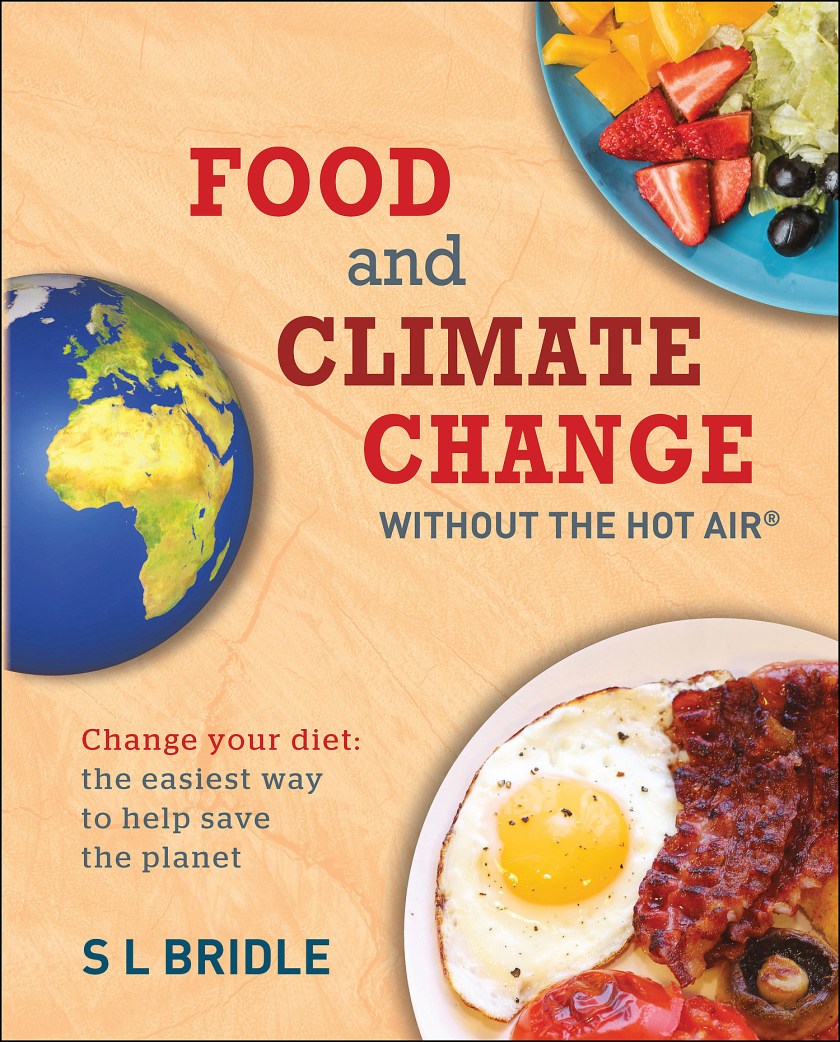
III. Competition is Killing Us, by @MichMeagher
A smart, fast-moving history of the neutering of monopoly law, by the Chicago School of neoliberal economists. The Chicago School put competition enforcement in chains. Meagher shatters them.
pluralistic.net/2021/01/08/com…
28/
A smart, fast-moving history of the neutering of monopoly law, by the Chicago School of neoliberal economists. The Chicago School put competition enforcement in chains. Meagher shatters them.
pluralistic.net/2021/01/08/com…
28/

IV. Monopolized, by @DDayen
Unpicks knots of bullshit and laying them straight to reveal them for the turds they are; showing how we're all drowning in crap. Pharma, aviation, newspapers, Big Tech, Big Funeral, all the scams that pick our pockets.
pluralistic.net/2021/01/29/fra…
29/
Unpicks knots of bullshit and laying them straight to reveal them for the turds they are; showing how we're all drowning in crap. Pharma, aviation, newspapers, Big Tech, Big Funeral, all the scams that pick our pockets.
pluralistic.net/2021/01/29/fra…
29/

V. Broad Band, by @TheUniverse
More than a celebration of the hidden woman heroes of the computing revolution – an epitaph for all the people whose talent, aptitude, dreams and contributions were squandered.
pluralistic.net/2021/02/13/dat…
30/
More than a celebration of the hidden woman heroes of the computing revolution – an epitaph for all the people whose talent, aptitude, dreams and contributions were squandered.
pluralistic.net/2021/02/13/dat…
30/

VI. Prisoners' Inventions, by Angelo
A carceral version of neo-neolithic Youtubers who bootstrap tools from raw materials. Prisoners treat the environment as a challenge, to be reconfigured, overcoming user-hostile designs and armed enforcers.
pluralistic.net/2021/06/09/kin…
31/
A carceral version of neo-neolithic Youtubers who bootstrap tools from raw materials. Prisoners treat the environment as a challenge, to be reconfigured, overcoming user-hostile designs and armed enforcers.
pluralistic.net/2021/06/09/kin…
31/

VII. Jackpot, by @MichaelMechanic
A pitiless, empathic look at the lives of the super-rich: the transactional relationships, the paranoia and greed, the pingponging between homes, the ruined offspring, the constant preoccuptation with accumulation…
pluralistic.net/2021/04/13/pub…
32/
A pitiless, empathic look at the lives of the super-rich: the transactional relationships, the paranoia and greed, the pingponging between homes, the ruined offspring, the constant preoccuptation with accumulation…
pluralistic.net/2021/04/13/pub…
32/

VIII. Mutual Aid, by Peter Kropotkin, @DavidGraeber, and others
Debunking the fraud of "social Darwinism," the idea that hierarchy and exploitation are evolutionarily baked into our genes. A gorgeous illustrated edition with an intro by Graeber.
pluralistic.net/2021/09/22/kro…
33/
Debunking the fraud of "social Darwinism," the idea that hierarchy and exploitation are evolutionarily baked into our genes. A gorgeous illustrated edition with an intro by Graeber.
pluralistic.net/2021/09/22/kro…
33/

IX. Savage Love A-Z, by @FakeDanSavage
Come for graphic sexual content, stay for thoughtful and philosophy. Savage's latest is an illustrated, alphabetical tour through the concepts of his decades-long corpus of wisdom, humor and learning.
pluralistic.net/2021/10/04/avo…
eof/
Come for graphic sexual content, stay for thoughtful and philosophy. Savage's latest is an illustrated, alphabetical tour through the concepts of his decades-long corpus of wisdom, humor and learning.
pluralistic.net/2021/10/04/avo…
eof/
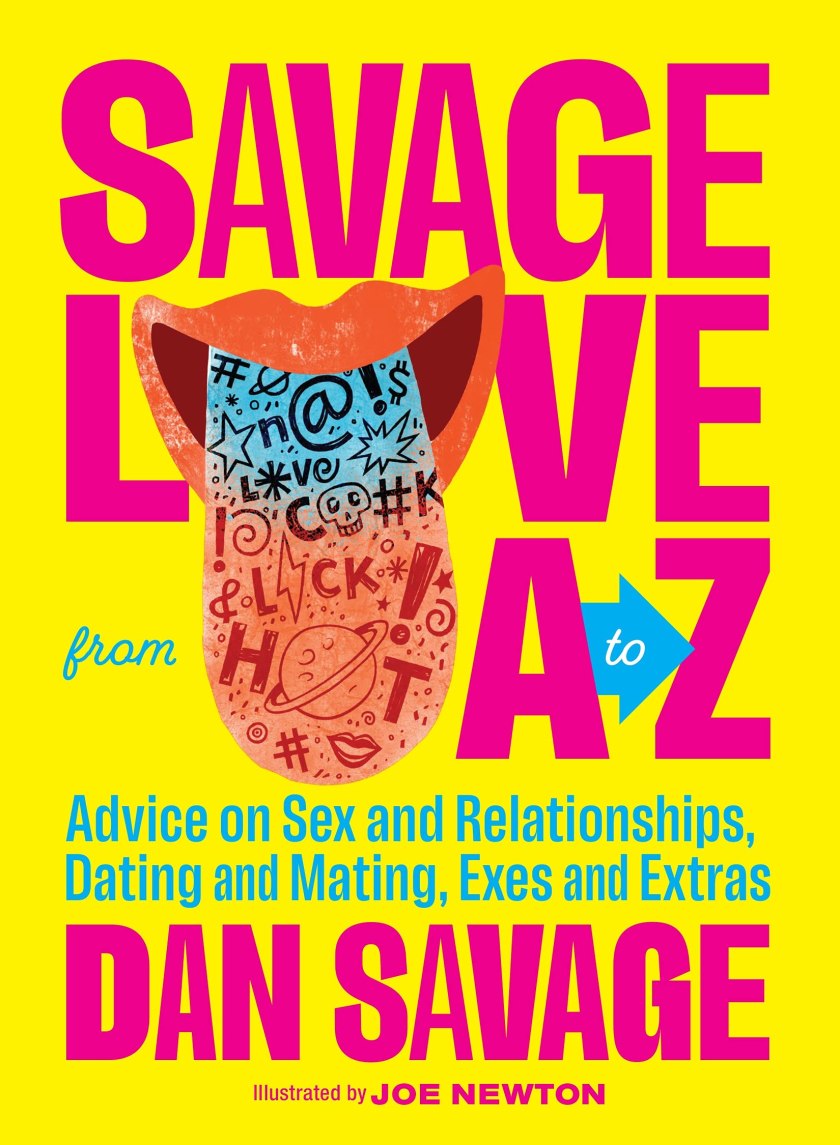
ETA - If you'd like an unrolled version of this thread to read or share, here's a link to it on pluralistic.net, my surveillance-free, ad-free, tracker-free blog:
pluralistic.net/2021/12/08/req…
pluralistic.net/2021/12/08/req…
• • •
Missing some Tweet in this thread? You can try to
force a refresh





